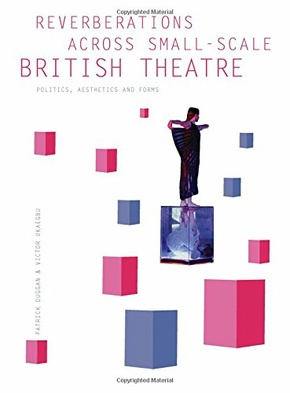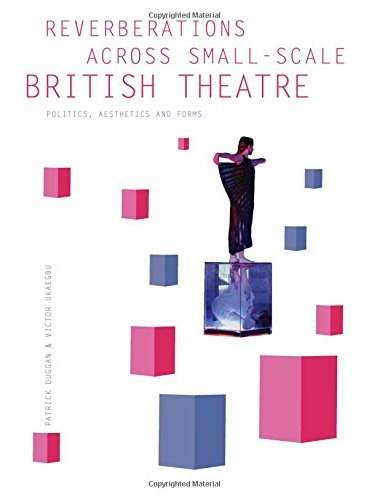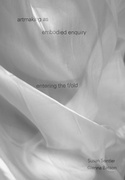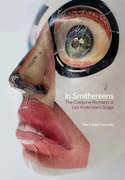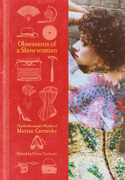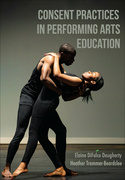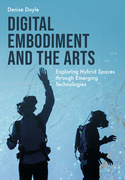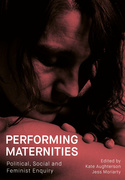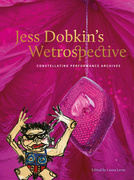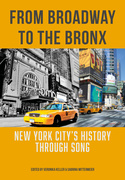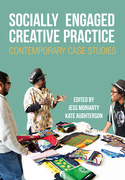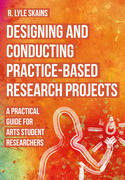Reverberations across Small-Scale British Theatre (Book)
Politics, Aesthetics and Forms
Between 1960 and 2010, a new generation of British avant-garde theatre companies, directors, designers and performers emerged. By questioning what 'Britishness' meant in relation to the small-scale work of these practitioners, contributors articulate how it is reflected in the goals, manifestos and aesthetics of these companies.
Edition
Between 1960 and 2010, a new generation of British avant-garde theatre companies, directors, designers and performers emerged. Some of these companies and individuals have endured to become part of theatre history while others have disappeared from the scene, mutated into new forms, or become part of the establishment. Reverberations across Small-Scale British Theatre at long last puts these small-scale British theatre companies and personalities in the scholarly spotlight. By questioning what 'Britishness' meant in relation to the small-scale work of these practitioners, contributors articulate how it is reflected in the goals, manifestos and aesthetics of these companies.
Dr. Victor I. Ukaegbu is a senior lecturer and course leader for Drama at The University of Northampton. He has written on African and intercultural theatres, postcolonial performances, gender, black British theatre, applied theatre, including a book; The Use of Masks in Igbo Theatre in Nigeria: the Aesthetic Flexibility of Performance Traditions. He is Associate Editor of African Performance Review and a member of the Editorial Board of World Scenography(Africa/Middle East).
Patrick Duggan's research interests lie in critical approaches to contemporary performance and the relationship between performance and the wider socio-cultural and political contexts in which it is made. He has recently published a monograph investigating the relationship between contemporary performance and trauma and his continuing research examines the relationship between cultural products and practices and their wider social contexts. Engaging with poststructuralist and political philosophy, Duggan's research is interdisciplinary in nature and particularly focused on questions of spectatorship, witnessing, trauma and ethics and is concerned to explore the socio-political efficacy of theatre, performance and other cultural practices.
Setting the Scene: Introducing Reverberations – Patrick Duggan and Victor Ukaegbu
Chapter 1: Foco Novo: The Icarus of British Small-Scale Touring Theatre – Graham Saunders
Chapter 2: Insider Knowledge: The Evolution of Belfast’s Tinderbox Theatre Company – David Grant
Chapter 3: Volcano: A Post-Punk Physical Theatre – Gareth Somers
Chapter 4: Tiata Fahodzi: Second-Generation Africans in British Theatre – Ekua Ekumah
Chapter 5: Keeping It Together: Talawa Theatre Company, Britishness, Aesthetics of Scale and Mainstreaming the Black-British Experience – Kene Igweonu
Chapter 6: Agitation and Entertainment: Rod Dixon and Red Ladder Theatre – Tony Gardner
Chapter 7: Intercultural to Cross-Cultural Theatre: Tara Arts and the Development of British Asian Theatre – Victor Ukaegbu
Chapter 8: Kind Acts: Lone Twin Theatre – Eirini Kartsaki
Chapter 9: Political Theatre ‘without Finger-Wagging’: On the Paper Birds and Integrative Aesthetics – Patrick Duggan
Chapter 10: ‘Angels and Modern Myth’: Grid Iron and the New Scottish Theatre – Trish Reid
Chapter 11: Acts of Poiesis: salamanda tandem – Mick Wallis and Isabel Jones
Coda – Franc Chamberlain
'This rich, fascinating text will hopefully inspire debate within the academy, and provide valuable insight into a wide range of companies as Britishness reaches a crossroads.'
'There is no other collection about British theatre companies like this: one that embraces smallness, employs its postcolonial approach so deftly to subjects both racially marked and unmarked and which treats company histories in such nuanced, concrete ways.'
'This book, then, is a valuable resource for academics and students alike, because it generously throws open methodological and archival questions, provides information about the working practices of a range of innovative companies (linked, perhaps, by their demonstrations of resistance, resilience and creativity) and works to pose critical questions about the theatre ecology of Britain over the past 30 years. '

